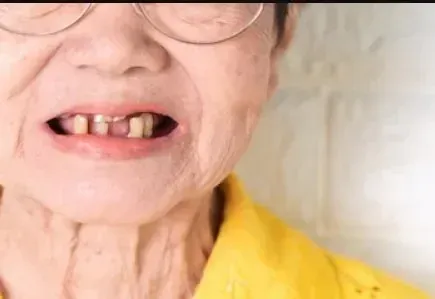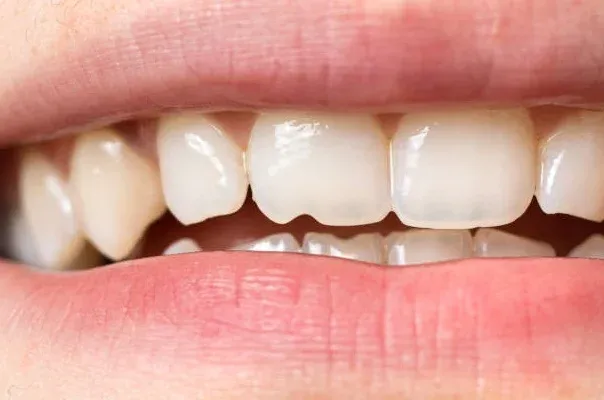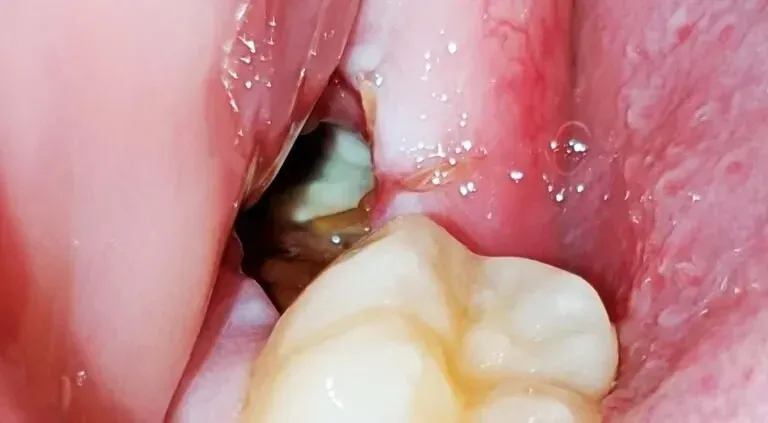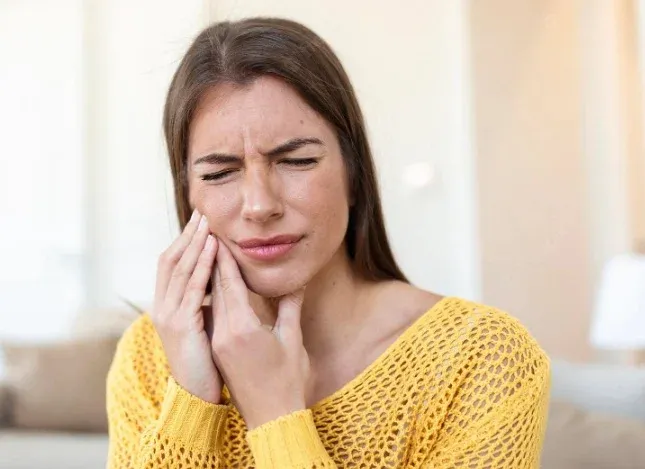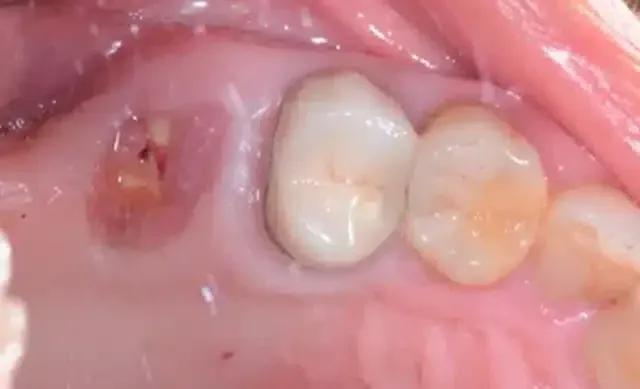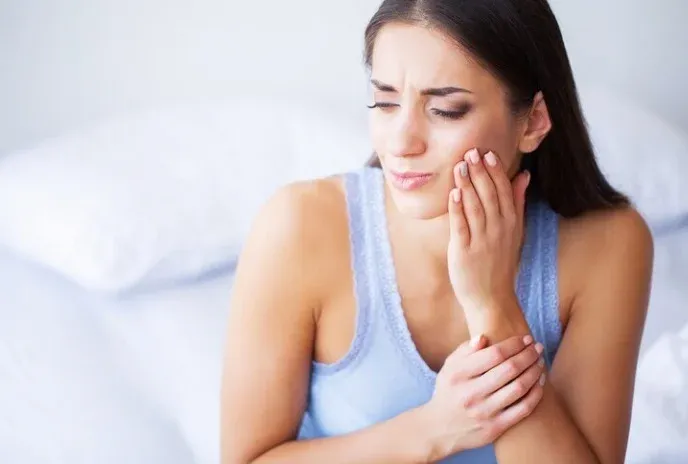My Teeth Are Breaking Into Pieces: Complete Guide to Causes & Solutions (2026)
Experiencing teeth that break or crumble can be alarming and painful. Whether you’re dealing with a…
Experiencing teeth that break or crumble can be alarming and painful. Whether you’re dealing with a single chipped tooth or multiple teeth breaking apart, understanding why this happens and what you can do about it is crucial for protecting your oral health. In this comprehensive 2026 guide, we’ll explore the causes, prevention strategies, and treatment options available when your teeth start breaking into pieces.
Understanding Why Teeth Break Into Pieces
When teeth begin breaking apart, it’s rarely without reason—even if the cause isn’t immediately obvious. Your teeth are incredibly strong, but various factors can compromise their structural integrity over time. The enamel that protects your teeth can weaken due to acid erosion, decay, or physical stress, making them vulnerable to fractures and breaks.
Many patients are surprised to discover that teeth breaking into pieces often results from a combination of factors rather than a single cause. Understanding these underlying issues is the first step toward effective treatment and prevention.
Common Causes of Teeth Breaking
Tooth Decay and Cavities
Dental caries remain one of the primary culprits behind breaking teeth in 2026. When bacteria in your mouth produce acid, it gradually erodes the protective enamel layer. As this process continues, the tooth structure weakens from the inside out. What might start as a small cavity can eventually compromise enough of the tooth that it simply breaks apart under normal chewing pressure.
Regular dental checkups and maintaining excellent oral hygiene—including brushing twice daily with fluoride toothpaste and flossing—can significantly reduce your risk of decay-related tooth breakage.
Why it helps: Removes more plaque than manual brushing while protecting weakened enamel with built-in pressure sensors that prevent aggressive brushing.
Bruxism (Teeth Grinding)
Teeth grinding, medically known as bruxism, places enormous stress on your teeth—often while you sleep. This repetitive force can create microscopic cracks in the enamel that gradually expand until the tooth chips or breaks. Many people don’t even realize they grind their teeth until significant damage has occurred.
If you wake up with jaw pain, headaches, or notice that your teeth appear worn down, you may be grinding your teeth at night. A custom night guard can protect your teeth from further damage while you sleep.
Trauma and Accidents
Physical trauma from sports injuries, falls, car accidents, or even biting down on something unexpectedly hard can cause immediate tooth breakage. Unlike gradual decay, traumatic breaks often require emergency dental attention to save the tooth and prevent infection.
Age-Related Wear and Weakening
As we age, our teeth naturally experience wear and tear. Decades of chewing, exposure to acidic foods and beverages, and the cumulative effects of minor damage can weaken tooth structure. The enamel becomes thinner, and the underlying dentin becomes more exposed and vulnerable.
Gum Disease and Recession
When gum disease causes your gums to recede, it exposes the tooth roots, which lack the protective enamel coating found on the crown of the tooth. These exposed roots are significantly more susceptible to decay and breakage. Advanced gum disease can also compromise the bone supporting your teeth, making them more likely to break under pressure.
Large or Old Dental Fillings
Teeth with large fillings have less natural tooth structure remaining, making them inherently weaker. Over time, the seal between the filling and the tooth can deteriorate, allowing bacteria to enter and cause decay underneath. Old amalgam fillings can also expand and contract with temperature changes, creating stress fractures in the surrounding tooth structure.
Medications and Dry Mouth
Many medications—particularly those commonly prescribed to older adults—can cause dry mouth as a side effect. Saliva plays a crucial role in neutralizing acids and remineralizing teeth. Without adequate saliva, your teeth become more vulnerable to decay and subsequent breakage.
When Teeth Chip or Break “For No Reason”
Many patients report that their tooth chipped off for no apparent reason. While it may seem sudden, there’s almost always an underlying cause. Often, the tooth has been gradually weakening due to one or more of the factors mentioned above, and what appears to be a spontaneous break is actually the final failure of compromised tooth structure.
Common hidden causes include:
- Enamel hypoplasia: A developmental condition where enamel doesn’t form properly, leaving teeth permanently weakened
- Acid erosion: Regular consumption of acidic beverages like soda, energy drinks, or citrus juices can silently dissolve enamel over time
- Undiagnosed bruxism: You may be grinding your teeth without realizing it, creating stress fractures that eventually cause breakage
- Hidden decay: Cavities can develop between teeth or under existing fillings where they’re not visible until significant damage has occurred
- Temperature stress: Repeated exposure to extreme temperature changes can create microscopic cracks that eventually propagate through the tooth
Why it helps: Contains nano-hydroxyapatite that helps rebuild and strengthen weakened enamel, reducing the risk of future breaks and chips.
Why Back Teeth Are Particularly Vulnerable
Back teeth (molars and premolars) bear the brunt of chewing forces and are particularly prone to breaking. These teeth have deep grooves and pits that can trap food particles and bacteria, making them more susceptible to decay. Additionally, back teeth often receive large fillings when cavities are treated, which can weaken the remaining tooth structure.
The cusps (pointed parts) of back teeth are especially vulnerable to breaking off, particularly if the tooth has been weakened by decay or a large filling. If you notice that your back teeth are breaking, it’s essential to see a dentist promptly to prevent further damage and potential tooth loss.
Treatment Options for Breaking Teeth
The appropriate treatment for breaking teeth depends on the extent of damage and the underlying cause. Your dentist will conduct a thorough examination, likely including X-rays, to determine the best course of action.
Dental Bonding
For minor chips and small breaks, dental bonding offers a quick and affordable solution. Your dentist applies a tooth-colored composite resin to the damaged area, sculpts it to match your natural tooth shape, and hardens it with a special light. Bonding typically lasts 5-10 years with proper care.
Dental Fillings
When tooth decay has caused the breakage, your dentist will remove the decayed portion and restore the tooth with a filling. Modern composite fillings are durable and can be color-matched to your natural teeth for a seamless appearance.
Dental Crowns
For more extensive damage, a dental crown may be necessary. Crowns cap the entire visible portion of the tooth, providing strength and protection. They’re particularly useful for teeth with large fillings or those that have undergone root canal treatment. With proper care, crowns can last 15 years or longer.
Root Canal Therapy
If a break extends into the tooth’s pulp (the inner chamber containing nerves and blood vessels), you may need root canal treatment to remove the infected tissue and save the tooth. Despite their reputation, modern root canals are typically no more uncomfortable than getting a filling.
Dental Veneers
For front teeth with chips or breaks that affect your smile, porcelain veneers offer an excellent aesthetic solution. These thin shells bond to the front surface of your teeth, providing a natural-looking restoration that’s highly resistant to staining.
Tooth Extraction and Replacement
When a tooth is too severely damaged to save, extraction may be the only option. Modern replacement options include dental implants, bridges, or partial dentures. Each has its advantages, and your dentist can help you choose the best option for your situation and budget.
Preventing Future Tooth Breakage
Prevention is always preferable to treatment when it comes to dental health. Here are evidence-based strategies to protect your teeth from breaking in 2026 and beyond:
Maintain Excellent Oral Hygiene
Brush your teeth at least twice daily with fluoride toothpaste, and floss once daily to remove plaque and food particles from between teeth. Consider using an electric toothbrush, which research shows removes more plaque than manual brushing.
Regular Dental Checkups
Visit your dentist every six months for professional cleanings and examinations. Early detection of cavities, cracks, or other problems allows for less invasive and less expensive treatment.
Address Teeth Grinding
If you grind your teeth, wear a custom night guard to protect them from excessive force. Your dentist can create a guard that fits comfortably and effectively protects your teeth while you sleep.
Modify Your Diet
Limit acidic foods and beverages, which erode enamel over time. When you do consume acidic items, rinse your mouth with water afterward and wait at least 30 minutes before brushing (brushing immediately after acid exposure can actually damage softened enamel).
Stay Hydrated
Drinking plenty of water throughout the day helps maintain adequate saliva production, which protects your teeth from decay. If you take medications that cause dry mouth, talk to your dentist about products that can help.
Use Protective Gear
Wear a mouthguard during contact sports or activities where dental trauma is possible. Custom-fitted guards from your dentist offer the best protection, but even over-the-counter options are better than nothing.
Avoid Using Teeth as Tools
Never use your teeth to open packages, crack nuts, or hold objects. These habits can cause immediate breaks or create stress fractures that lead to problems later.
Why it helps: Protects teeth from grinding damage with a custom-fit design that’s comfortable enough to wear all night, preventing stress fractures and breakage.
When to Seek Emergency Dental Care
Some situations require immediate dental attention. Contact your dentist or visit an emergency dental clinic if you experience:
- Severe pain that doesn’t respond to over-the-counter pain relievers
- A tooth broken off at the gum line, even if it doesn’t hurt
- Significant bleeding that doesn’t stop within 10-15 minutes
- A broken tooth with sharp edges that are cutting your tongue or cheek
- Signs of infection such as swelling, fever, or pus
- A knocked-out tooth (time is critical—see a dentist within 30 minutes for the best chance of saving the tooth)
Special Considerations for Older Adults
As we age, several factors make teeth more susceptible to breaking. The cumulative effects of decades of chewing, potential gum recession, reduced bone density in the jaw, and the side effects of medications all contribute to increased vulnerability.
Older adults should be particularly vigilant about:
- Maintaining regular dental visits, even if teeth feel fine
- Discussing medication side effects with both their physician and dentist
- Using products designed for sensitive teeth if gum recession has occurred
- Considering fluoride treatments or prescription-strength fluoride toothpaste to strengthen enamel
- Addressing dry mouth promptly with saliva substitutes or medications that stimulate saliva production
The Psychological Impact of Breaking Teeth
Beyond the physical concerns, breaking teeth can have significant emotional and psychological effects. Many people feel embarrassed about their appearance, especially if front teeth are affected. This can lead to avoiding social situations, covering your mouth when speaking or smiling, and decreased self-confidence.
It’s important to remember that dental problems are common and treatable. Modern dentistry offers excellent solutions that can restore both function and appearance. Don’t let embarrassment prevent you from seeking the care you need—dentists see these issues every day and are focused on helping you, not judging you.
Cost Considerations and Insurance Coverage
The cost of treating breaking teeth varies widely depending on the extent of damage and the treatment required. Simple bonding might cost $100-$400 per tooth, while crowns typically range from $800-$3,000. Root canals add $700-$1,500 to the cost, and implants to replace extracted teeth can cost $3,000-$6,000 per tooth.
Most dental insurance plans cover at least a portion of necessary treatments, though cosmetic procedures may not be covered. Many dental offices offer payment plans or financing options to make treatment more affordable. Don’t avoid necessary treatment due to cost concerns—untreated dental problems almost always become more expensive and complicated over time.
Living with Weakened Teeth
If you have teeth that are weakened but not yet broken, or if you’ve had teeth repaired and want to protect them, certain lifestyle adjustments can help:
- Cut food into smaller pieces rather than biting into hard or tough items
- Chew on both sides of your mouth to distribute forces more evenly
- Avoid extremely hard foods like ice, hard candy, popcorn kernels, and hard nuts
- Be cautious with sticky foods that can pull on weakened teeth or existing dental work
- Use lukewarm rather than very hot or very cold foods and beverages to minimize temperature stress
The Bottom Line
Teeth breaking into pieces is a serious dental concern that requires professional attention, but it’s also highly treatable and often preventable. Whether your teeth are breaking due to decay, grinding, age-related wear, or other factors, modern dentistry offers effective solutions to restore your smile and protect your oral health.
The key is to act promptly when you notice problems. Early intervention almost always results in simpler, less expensive, and more successful treatment. Don’t wait until extreme tooth pain keeps you awake at night—see your dentist at the first sign of trouble.
Remember that your teeth are meant to last a lifetime with proper care. By maintaining excellent oral hygiene, addressing problems early, protecting your teeth from trauma and grinding, and working closely with your dental team, you can minimize the risk of tooth breakage and enjoy a healthy, confident smile for years to come.
If you’re currently dealing with breaking teeth, take comfort in knowing that you’re not alone and that effective help is available. Schedule an appointment with your dentist today to discuss your concerns and explore your treatment options. Your future smile will thank you.

